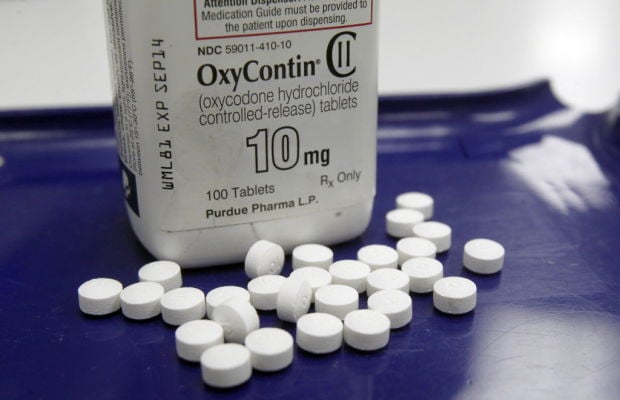PHOENIX — A new state report shows Arizona saw 280 suspected opioid deaths over a little more than two months this summer even after Republican Gov. Doug Ducey declared a public health emergency to address the national opioid epidemic affecting Arizona.
The preliminary data released Wednesday appear to show an increase in the deaths. But the Arizona Department of Health Services said it cannot confirm a definitive increase until final cause reports are available. The opioid deaths spanned from mid-June through Aug. 24, the state report said.
"I'm declaring a statewide health emergency because we need to know more about the epidemic, including enhanced data that illustrate when and where these overdoses occur so that we can develop real, targeted solutions," Ducey said in a statement in early June.
The new report said there were 2,361 suspected overdoses during that period throughout all but one of Arizona's 15 counties. Officials indicated heroin and oxycodone were the most commonly noted drugs in overdose reports. The data underscore the urgency to take action, they said.
"Addressing the opioid epidemic requires an all-hands-on-deck approach," Dr. Cara Christ, the director of the department said in a statement.
The data also show 41 percent of people who had a possible overdose during that time had 10 or more providers prescribe opioids over the last year. It notes those who had possible overdoses most commonly reported chronic pain as a pre-existing condition.
The study comes after a previous report documented 790 opioid deaths across the state in 2016. The 2016 report showed a 16 percent increase from the previous year.
The department also included a series of recommendations for law enforcement, correctional facilities, opioid legislation, and medical education curriculums across Arizona.
The report's recommended opioid legislation that would impose a five-day limit on all first fills of prescriptions, regulating pain management clinics, and "requiring e-prescribing for Schedule II controlled substance medications" to reduce the risk of fraudulent prescriptions.
The apparent increase in opioid deaths in Arizona came despite state officials' long-held priority to combat the opioid epidemic.
Ducey outlined efforts to tackle the issue in January's state of the state address. That day, the governor issued an executive order giving inmates facing addiction the chance to enter a program and be treated with Vivitrol, an opioid antagonist that helps prevent heroin and opioid dependency, before leaving prison.
The report also recommended increasing the number of precincts and participants in a pilot program rolled out in a Phoenix neighborhood designed to combat the opioid epidemic.
In April, state and law enforcement officials joined President Donald Trump's acting drug czar to bring attention to the program, which asks addicts to turn in their drugs at local police departments and get treatment without fear of being arrested.





